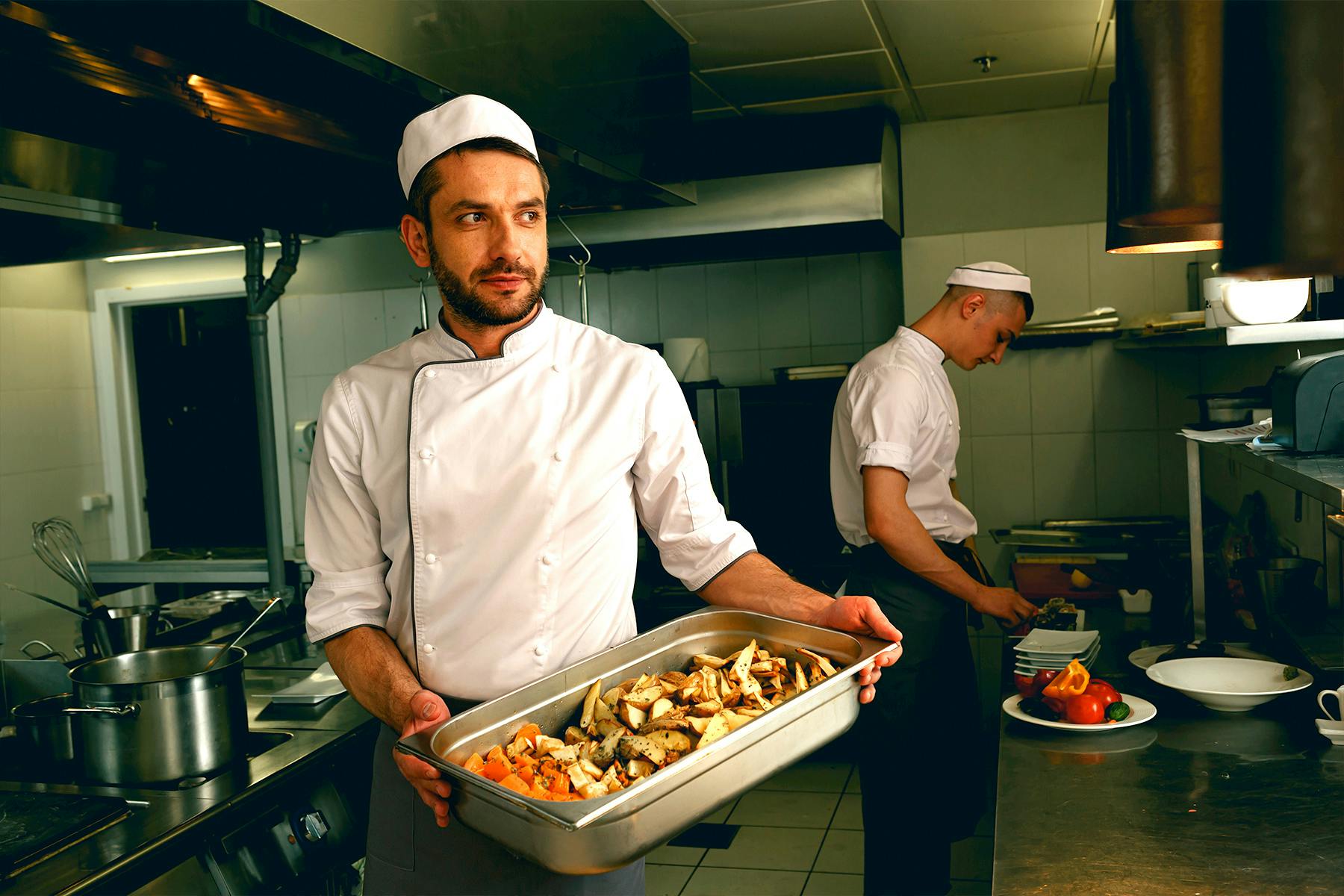Study Finds Dark Kitchens are on the Rise in Saudi Arabia

Dark kitchens – also known as cloud kitchens or ghost kitchens – are commercial spaces used to prepare and deliver food solely for delivery, without the traditional dining area seen in restaurants. Some kitchens have multiple brands operating from the same dark kitchen, which allows them to tailor brands toward different markets while reducing overheads.
A recent study by Deliverect and Qoot has unearthed just how important dark kitchens have become to the Food & Beverage (F&B) industry. Participants were given a survey and asked about their business, industry, and experience with dark kitchens, the results of which will be revealed in this article.
The Qoot Association
Qoot is a Saudi Arabian trade association founded in 2019 to represent the country's F&B sector. Qoot works to improve the sector's business and legislative environment and fosters economic growth in line with KSA Vision 2030. They engage the public and private sectors on policies, investment opportunities, and regulations that can benefit the food service industry.
The Rise of Dark Kitchens
The onset of COVID-19 drastically changed consumer habits, driving shoppers to buy and sell more online, resulting in a surge for dark kitchens. Technology and digital platforms improvements around this time further propelled the industry's growth. As customers increasingly turned to food delivery services throughout the pandemic, delivery firms had to ramp up their offerings to stay competitive. Due to this growth, the global delivery industry is projected to surpass the $154.34 billion mark by 2023, according to BusinessWire. This strong growth is likely to have a positive impact on the booming dark kitchen business model.
Gen-Z is particularly open to global cuisines and often leaves reviews on digital platforms. This has created an opportunity for dark and cloud kitchens to introduce additional brands and scale up to meet the demand for different cuisines. Saudi Arabia is well-positioned to take advantage of the growth of dark kitchens, as the country hosts several global events that attract tourists and create additional growth opportunities.
However, despite Gen-Z’s interest in international cuisine, Deliverect found that Millennials are the driving force behind the restaurant-to-home trend. In fact, this category is expected to be a $500 billion global market by 2026, with an annual growth rate of 8.29 percent.
Scaling Up with Multiple Brands
As dark kitchens rely on operational technology, 90% of operators surveyed would describe themselves as intermediate to fluent with the technology available within the sector. A mere 10% stated they had low comprehension of such aids.
Technology aside, the survey found that 78% were willing to incorporate dark kitchens into their business offering, with only 22% still deciding whether to do so. Of the 57% currently using the dark kitchen model, the majority (45%) stated they operate between 2 and 5 brands each. However, the industry is ready to expand further with 43% only using one brand and 21% actively interested in opening dark kitchens.
78% (of the surveyed food service operators) were willing to incorporate dark kitchens into their business offering.
Dark Kitchens in Operation
The survey indicated an increasing awareness of dark and cloud kitchens, with 88% of respondents aware of such operations and most (63%) stating that dark kitchens were increasing. While 10% believed the popularity of dark kitchens has decreased, a further 18% considered dark kitchens growing exponentially.
Of those currently operating dark kitchens, most (39%) were operating one dark kitchen, while 22% operated over five dark kitchen brands. 78% said they managed more than multiple kitchen brands, but surprisingly 70% were not intending to open any additional dark kitchens.
Reliance on Delivery Services
Regarding delivery, 7% of restaurants reported a low dependence on delivery services; 12% were entirely dependent, but the majority (48%) had a moderate reliance on delivery for revenue. A result in line with industry and customer behavior around the world.
Most respondents (30%) claimed to receive 50% or more of their income through deliveries, with only 12% reporting that their delivery brought under 10% of revenue into their F&B business. This is interesting as takeaways and dark kitchens typically offer higher profit margins.
The majority (48%) had a moderate reliance on delivery for revenue. A result in line with industry and customer behavior around the world.
Sales and Marketing
The market for dark kitchens is increasing, but their establishment and success largely depend on influential marketing campaigns. As dark kitchens do not have a physical presence, awareness has to be continually raised through marketing. While this variable was not surveyed, the sales and profitability of dark kitchens were, which provides a relevant context on how well the dark kitchen business model performs.
In terms of operational costs, the majority (44%) reported cheaper running costs. A further 38% experienced higher demand from their dark kitchens, with 17% stating their dark kitchen sales were higher.
In terms of operational costs, the majority (44%) reported cheaper running costs.
Summary
The survey results demonstrate that dark kitchens are becoming increasingly popular in Saudi Arabia, and businesses are beginning to take advantage of the revenue opportunities they provide. With the growth of the delivery industry, dark kitchens are becoming more and more profitable and offer a viable option for businesses looking to expand. By creating multiple brands under one dark kitchen, F&B businesses can tailor their offerings to meet the needs of different markets.
While many restaurants are already operating multiple brands from dark kitchens, the opportunity for growth remains. Most respondents reported higher profitability from their dark kitchens, with 78% prepared to expand into this new business model and 77% interested in receiving more insights about dark and cloud kitchens.
Deliverect and Qoot are committed to supporting the sector in its journey to success by continuing to provide the insights needed to unlock the full potential of dark kitchens.
Download the complete results here and learn more about the dark kitchen landscape in Saudi Arabia.